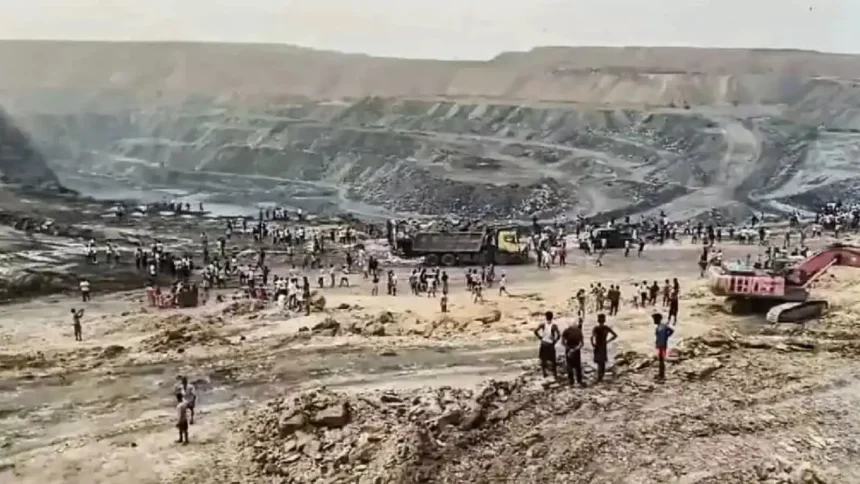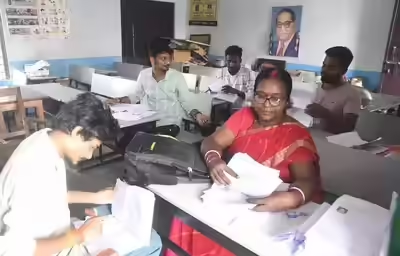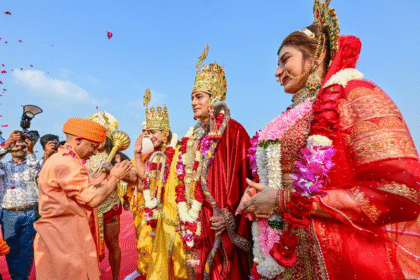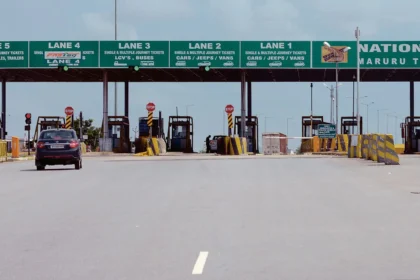6 Labourers Killed in Birbhum Quarry Collapse: Illegal Stone Economy Under Scrutiny
Nalhati (West Bengal): Samaul Mollah, Abid Sheikh of Sareha village, Hazrat Ali of Baganpara, and Lalbabu Sheikh, Rath Mondal of Shimdohri and Kajal Let of Kadashir village in Birbhum – these six names have been forgotten by the political class and the media cycle.
Buried in an illegal quarry collapse on September 13 in the Bahadurpur area of Birbhum, their deaths were not a random accident.
“He used to work in Delhi for many years, but he quit that job and started working at the quarry near his hometown because he was afraid that if he spoke Bengali in Delhi, the police would arrest him and send him to Bangladesh. We never imagined such a tragic accident would happen here,” says a woman at Hazrat Ali’s house.
The incident is a rerun of a similar collapse that killed three labourers in the same area last October, when a rain-soaked wall gave way, burying the workers as they drilled and installed dynamite. Eyewitnesses described it as a frantic, colleague-led rescue effort until official help arrived.
These fatal accidents are no longer isolated tragedies but an outcome of chronic negligence and a complete disregard for human life in an industry that runs on the desperation of its workforce.
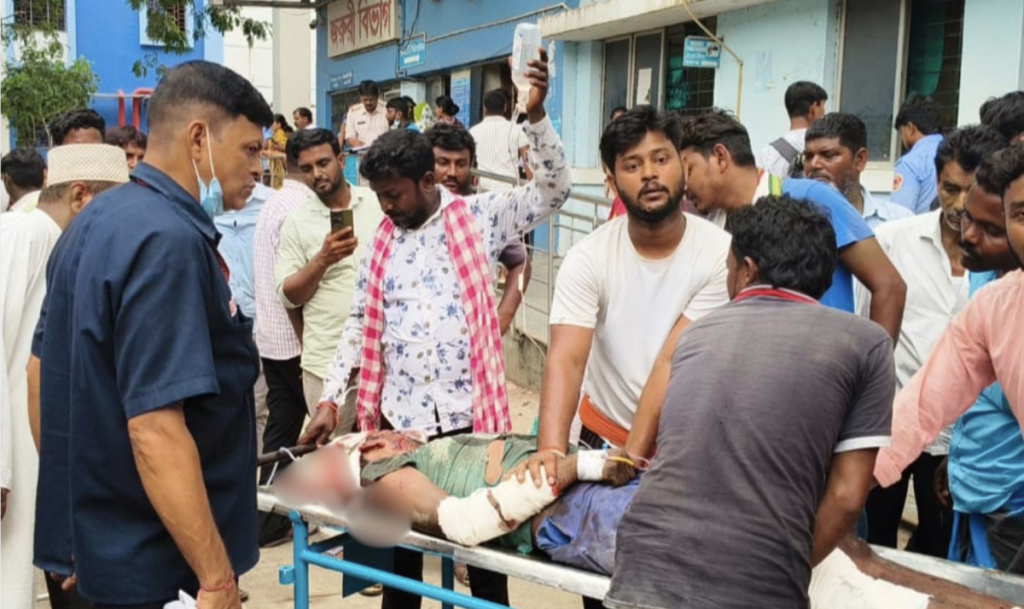
“We do not have unions, so after a death from an accident, the owners give the family a small amount of money as they please. And since all the quarries are now illegal, the owners handle the police and leaders first. Collapses are common towards the end of the monsoon, but there is no other way to make a living!” says Rezaul Sheikh, one of the miners.
“I also do this work. What else can I do to survive? But a lot of safety is needed when drilling in the monsoon. The owners never think about that. They put pressure on us to finish the work quickly so that production doesn’t stop because of accumulated rainwater. And these things happen because we have to obey their orders,” laments Safiul Sheikh, who was tending to the injured.
Following the collapse, police arrested the quarry operator. Birbhum’s Superintendent of Police, Aman Deep, said, “The accident happened due to a collapse during illegal stone extraction. We are monitoring such illegal stone quarries.”
In 2017, the National Green Tribunal (NGT) declared 211 of the 217 quarries in Birbhum illegal and ordered their closure. On paper, they are shut but in reality, hundreds of quarries operate freely.
“Although they are officially closed on paper, in reality, they are up and running,” says senior CPI(M) leader Ramchandra Dom. “But with whose patronage are they running? Why is the administration silent, knowing everything, and accepting the DCR royalty?”
The Trinamool MLA from Nalhati, Rajendra Prasad Singh said, “I have heard about the incident, but I don’t know the details… That area is now under the control of the BJP, and all the work is happening under their control.”
In the last 18 months, at least 18 miners have died across the Nalhati stone industrial area. The response is a well-oiled routine of payouts and silence, alleges Suren Mal, a stone worker in Nalhati.

“When an accident happens, the owners take the bodies to the hospital,” he says. “Their people are ready. If someone dies, the owners in Nalhati give two to three lakh rupees in compensation during the post-mortem. In nearby Mohammad Bazar, they get five lakhs. What’s the point of fighting with a police case? We go to work knowing the risks.”
This tragedy, however, is merely the tip of the iceberg. Such crises are characterised by significant human and environmental costs, financial losses to the state and a robust criminal nexus that operates with a striking degree of impunity.
The financial infrastructure of this nexus relies on the Duplicate Carbon Receipt (DCR) system, a source of millions of rupees in illegal daily income. The illicit scheme at the Bahadurpur intersection has allegedly metastasised into a district-wide extortion network, generating millions of rupees in illegal daily income.
Stone merchant Sheikh Naim alleges, “We have to please leaders from various government departments. No operator wants to run an illegal mine and then pay a huge amount in DCR. The government should standardise the process.”
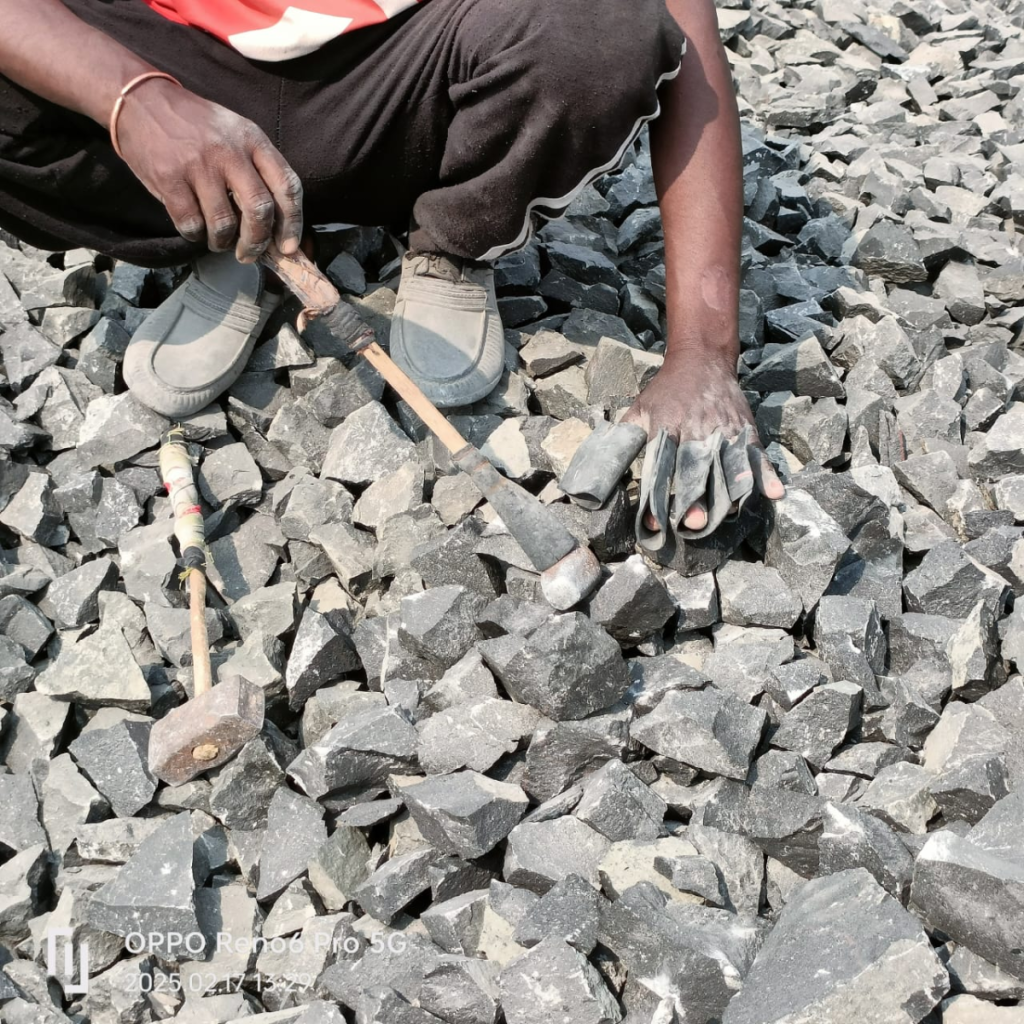
It is mechanised through a well-established system of ‘hafta’ (bribes) collected at unofficial checkpoints. A local in-charge on National Highway-14, who wished to stay anonymous, admitted that overloaded trucks pay a “fee” of Rs 2,200 each, with over 700 trucks effectively purchasing daily ‘permits.’
This nexus thrives on a consensus between political rivals. Despite public rivalry, the ruling party and the opposition operate a de facto partnership, locals have alleged. Key figures seamlessly switch sides, ensuring that the lucrative illegal industry is protected regardless of who is in power. The depth of this impunity was laid bare during the investigation into the Bogtui massacre in 2022, which killed 10 people.
“During the Bogtui massacre, this issue came to light. But due to a strange setting the CBI never went to the incident site, which was two kilometres from the scene, to investigate. And to save the extortionists, the government land office officials themselves held a camp at their office,” said stone supplier Rafique Sheikh.
In 2022, the National Investigation Agency (NIA) seized around 85,000 electric detonators, 27,000 kg of ammonium nitrate and around 1,700 kg of gelatin sticks from Birbhum. On paper, the probe agency is probing the misuse of explosives by stone quarry operators across Birbhum, Bankura, and Paschim Bardhaman. Yet, on the ground, the pits stay busy.
Also Read: Why Microsoft Cut Some Services to Israel Amid Mass-Surveillance Revelations


